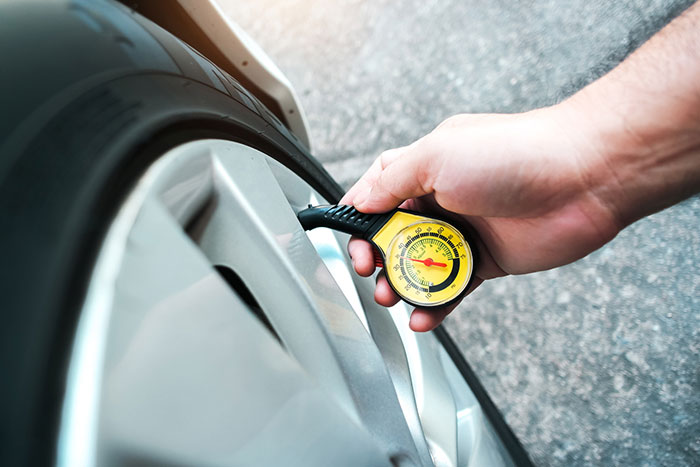
Staying safe on the road is a top priority for all motorists, but one often overlooked aspect is the importance of proper tyre pressure. That’s where tyre pressure monitoring systems (TPMS) come in – these smart little devices alert you to any changes in inflation, helping to ensure your tyres are in top shape.
Underinflated tyres can have a significant impact on your vehicle’s handling, fuel efficiency, and even the lifespan of the tyres themselves. A TPMS monitors the air pressure in each tyre and provides real-time feedback, this not only enhances your on-road safety but also helps you save money in the long run by preventing premature tyre wear and tear.
Investing in a reliable TPMS is a smart decision for any driver, but with all electronic devices, sometimes things can go wrong. While troubleshooting can often be simple as recalibrating the system or repositioning sensors, when issues persist, expert attention is the best solution.
Common TPMS Problems That May Require Professional Help
While tyre pressure monitoring systems are engineered to be reliable, especially Safe T Tyre’s TPMS, there are some common issues that arise that might require the assistance of an expert.
Sensor Failure – Over time, sensors can fail due to a number of reasons including wear and tear, battery depletion, or physical damage. If a sensor is not functioning correctly, your TPMS warning alarm will sound, indicating the need for professional diagnosis and repair.
Incorrect Sensor Placement – Proper sensor placement is essential for accurate TPMS readings. If a sensor is not installed correctly or has been moved to a different tyre, it can cause inaccurate pressure readings and trigger false warnings. A TPMS expert can ensure your sensors are positioned correctly.
Incompatible Replacement Tyres – When you replace your tyres, it’s vital to ensure that the new tyres are compatible with your tyre pressure monitoring system. Incompatibility can cause the system to malfunction, leading to inaccurate readings and potential safety risks.
Don’t take chances with your TPMS. If you encounter any of these common issues, it’s best to have a TPMS expert diagnose and address the problem promptly.
Signs You Should Engage a TPMS Specialist
If you notice any of these signs, get in touch with a TPMS specialist to
TPMS warning alarm is continuously sounding – This is the most obvious sign that something is wrong with your tyre pressure monitoring system. Check that the tyre pressures set up for each axel are set up correctly for your tyres, if it all seems ok, seek expert help.
You’re not getting any readings even after you have recalibrated the system – TPMS sensors often need to be calibrated, if you have done this and you’re still not getting any readings then reach out to a TPMS professional.
Your sensors aren’t reading – Ensure the batteries are adequately charged and that the right parameters are set. If they are it’s likely your sensors may need to be repaired or replaced by a professional.
Letting a TPMS expert handle your troubleshooting offers numerous benefits that can save you time, money, and hassle. They have the specialised knowledge to accurately diagnose and fix the root cause of the problem. They understand the intricacies of the system and can quickly identify the faulty component, whether it’s a sensor, the control module, or something else. This means they can rectify the issue right the first time, rather than you wasting time and money on trial-and-error repairs.
Don’t Take Chances with Your TPMS – Seek Help When Needed
Addressing TPMS problems promptly can help you avoid costly tyre damage and keep your family safe on the road. Consult a TPMS specialist at the first sign of trouble. Attempting DIY repairs could lead to further damage and compromise the effectiveness of your TPMS.
The team at Safe T Tyre is here to help with any troubleshooting advice you need for our tyre pressure monitoring products or tyre pressure checks. Don’t hesitate to reach out to us today if you are experiencing any issues – contact us online or call 1800 499 383.

